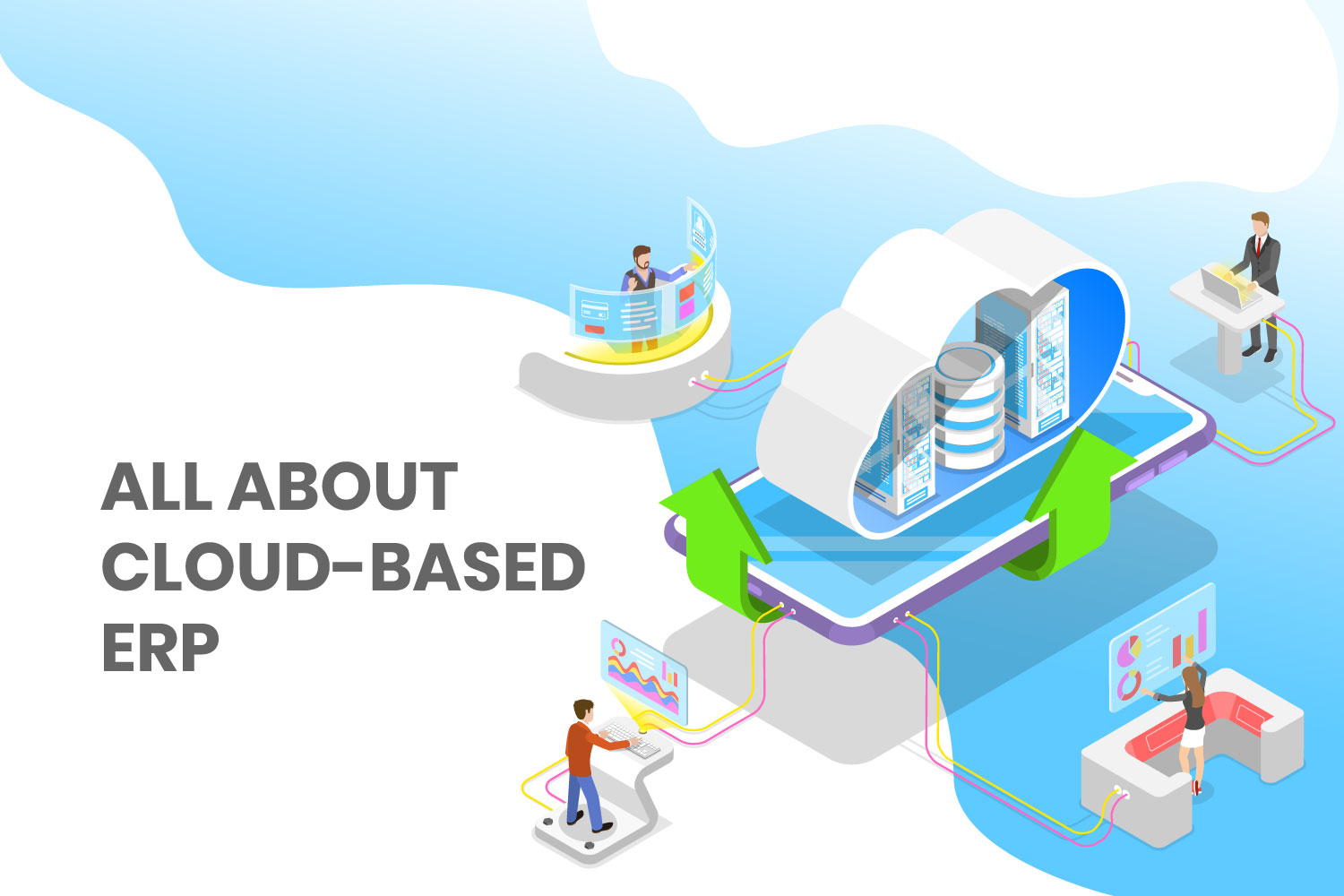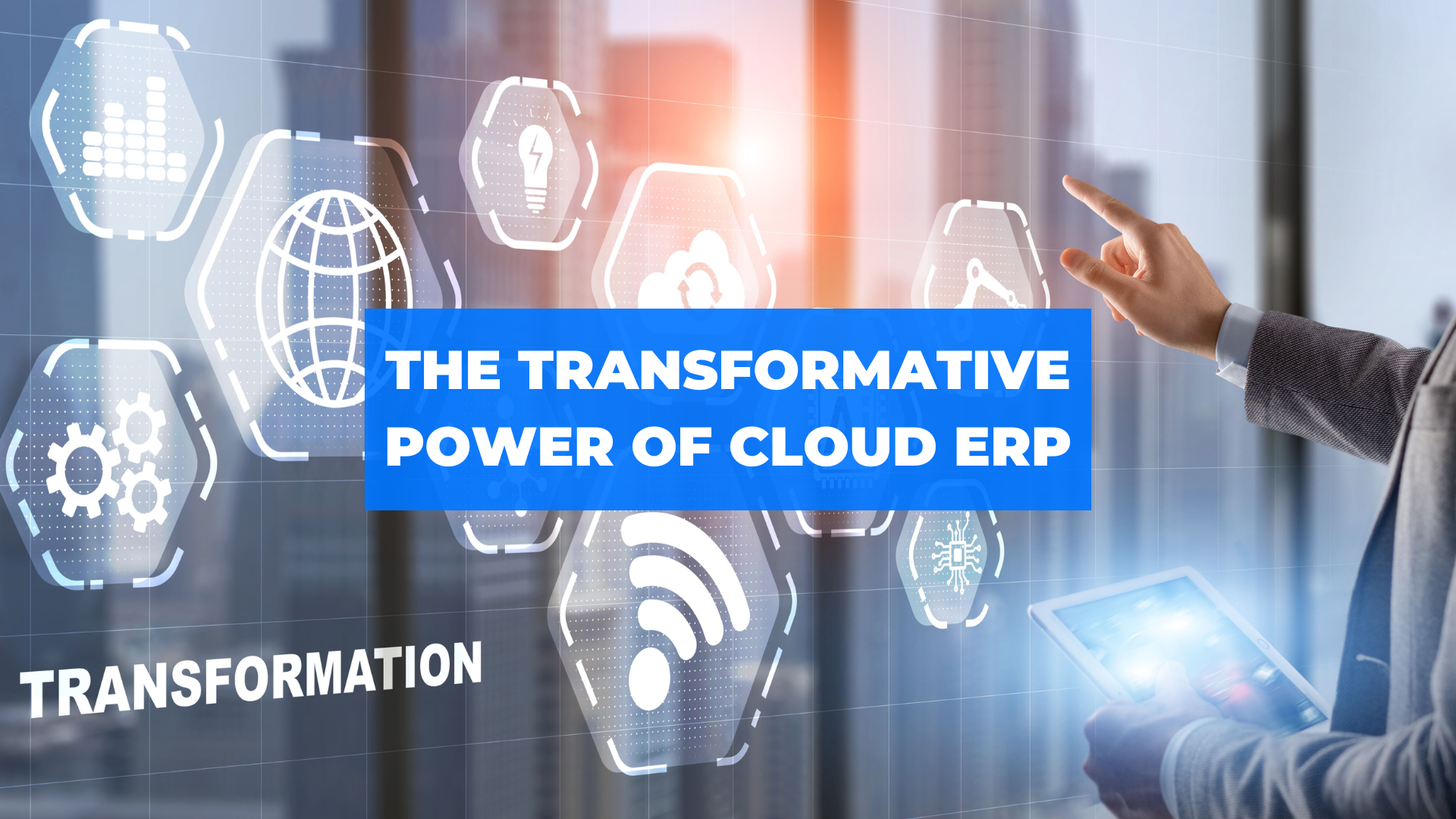Harnessing the Power of Cloud-Based ERP for Business Transformation
In the ever-evolving landscape of business technology, cloud-based enterprise resource planning (ERP) systems have emerged as a transformative force, empowering organizations of all sizes to streamline operations, enhance efficiency, and gain a competitive edge. With its unparalleled accessibility, scalability, and cost-effectiveness, cloud ERP is revolutionizing the way businesses manage their critical processes, unlocking a world of possibilities for growth and success.
Embracing the Cloud: A Paradigm Shift in ERP Deployment
Traditionally, ERP systems were deployed on-premises, requiring significant upfront investments in hardware, software, and IT infrastructure. This approach often proved cumbersome, expensive, and inflexible, limiting the ability of businesses to adapt to changing market dynamics and technological advancements.
Cloud-based ERP, on the other hand, offers a paradigm shift in deployment. Hosted on remote servers and accessed via the internet, cloud ERP eliminates the need for on-premises infrastructure, reducing upfront costs and ongoing maintenance expenses. This flexible and scalable solution allows businesses to pay only for the resources they need, scaling up or down as their requirements evolve.

Unlocking the Value of Cloud ERP: A Comprehensive Overview
Cloud ERP systems offer a comprehensive suite of integrated modules that cover all aspects of business operations, including:
- Financial Management: Streamline financial processes, automate accounting tasks, and gain real-time visibility into financial performance.
- Supply Chain Management: Optimize inventory levels, improve supplier relationships, and enhance logistics efficiency.
- Customer Relationship Management (CRM): Manage customer interactions, track sales pipelines, and provide exceptional customer service.
- Human Capital Management (HCM): Automate HR processes, streamline payroll, and empower employees with self-service capabilities.
- Project Management: Plan, execute, and track projects effectively, ensuring timely delivery and cost control.
Advantages of Cloud ERP: Empowering Businesses for Success
The adoption of cloud ERP brings forth a multitude of advantages that can transform business operations:
- Reduced Costs: Eliminate upfront hardware and software investments, reduce IT maintenance expenses, and pay only for the resources utilized.
- Enhanced Flexibility: Scale up or down as needed, adapting to changing business requirements without costly infrastructure upgrades.
- Improved Accessibility: Access ERP data and applications from anywhere with an internet connection, empowering remote work and collaboration.
- Increased Security: Benefit from robust security measures provided by cloud providers, ensuring data protection and compliance.
- Real-Time Insights: Gain real-time visibility into business performance, enabling data-driven decision-making and proactive problem-solving.

Disadvantages of Cloud ERP: Considerations for Adoption
While cloud ERP offers significant advantages, it is essential to acknowledge potential drawbacks:
- Internet Dependency: Cloud ERP systems require a reliable internet connection, and disruptions can impact accessibility.
- Data Security Concerns: Ensure data security by selecting a reputable cloud provider with strong security protocols and compliance certifications.
- Customization Limitations: Cloud ERP systems may offer less flexibility for customization compared to on-premises deployments.
- Integration Challenges: Integrating cloud ERP with existing systems can be complex and time-consuming, requiring careful planning and execution.
- Vendor Lock-In: Choose a cloud ERP provider carefully to avoid vendor lock-in and ensure future flexibility.

Key Pain Points of Ideal Customer Persona: Addressing Business Challenges
To effectively showcase the value of cloud ERP, it is crucial to understand the key pain points of your ideal customer persona. Common challenges faced by businesses that can be addressed by cloud ERP include:
- Inefficient Processes: Manual and disconnected processes lead to errors, delays, and reduced productivity.
- Limited Data Visibility: Lack of real-time data and fragmented systems hinder informed decision-making.
- High IT Costs: On-premises ERP systems can be expensive to acquire, maintain, and upgrade.
- Lack of Flexibility: Traditional ERP systems are inflexible and cannot adapt to changing business needs.
- Poor Collaboration: Disparate systems and limited remote access hinder collaboration and communication.
Cloud ERP as a Solution: Addressing Pain Points and Driving Value
Cloud ERP systems are uniquely positioned to address these pain points and deliver tangible value to businesses:
- Streamlined Processes: Automate tasks, eliminate redundancies, and improve overall operational efficiency.
- Enhanced Data Visibility: Gain real-time insights into all aspects of business operations, empowering data-driven decisions.
- Reduced IT Costs: Eliminate upfront hardware and software investments, reduce maintenance expenses, and scale costs based on usage.
- Increased Flexibility: Adapt to changing business needs quickly and easily, without costly infrastructure upgrades.
- Improved Collaboration: Enable seamless collaboration and communication among teams, regardless of location.
Conclusion: Embracing Cloud ERP for Business Transformation
In conclusion, cloud-based ERP systems offer a transformative solution for businesses seeking to streamline operations, enhance efficiency, and gain a competitive edge. By addressing key pain points and unlocking a wealth of benefits, cloud ERP empowers businesses to:
- Reduce costs and improve ROI: Eliminate upfront investments, reduce IT expenses, and pay only for the resources utilized.
- Gain real-time insights: Access real-time data and analytics to make informed decisions and proactively address challenges.
- Increase agility and flexibility: Adapt quickly to changing market dynamics and business needs without costly infrastructure upgrades.
- Enhance collaboration and productivity: Empower teams with seamless collaboration tools and remote access to data and applications.
- Drive innovation and growth: Leverage the latest technologies and industry best practices to stay ahead of the competition and achieve business success.
Embracing cloud ERP is a strategic decision that can transform the way businesses operate, unlocking a world of possibilities for growth, efficiency, and profitability. By partnering with a reputable cloud ERP provider and carefully considering the specific needs of your organization, you can harness the power of cloud technology to drive your business towards success.
Rebuttal: Addressing Common Concerns and Objections
Some businesses may hesitate to adopt cloud ERP due to concerns about security, data privacy, and vendor lock-in. However, it is important to address these concerns and provide reassurance:
- Security: Reputable cloud ERP providers implement robust security measures and comply with industry standards to ensure data protection and privacy.
- Data Privacy: Cloud ERP systems provide granular data access controls and encryption to safeguard sensitive information.
- Vendor Lock-In: Choose a cloud ERP provider that offers open APIs and data portability, ensuring flexibility and the ability to switch providers if necessary.
By addressing these concerns and providing transparency, businesses can make informed decisions about cloud ERP adoption and confidently embrace the transformative benefits it offers.
